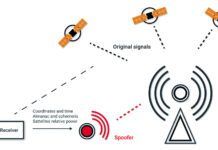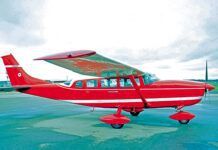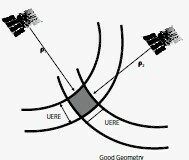FAA Issues New GA Medical Rules
After years of lobbying by general-aviation advocates, the FAA issued new rules in January that aim to make it easier for many pilots to maintain their medical certification. The FAA third-class medical, which GA advocates have long argued is a nuisance to pilots that does little to advance safety, will still be required, but starting May 1 pilots can choose a new renewal option called BasicMed. “The BasicMed rule will keep our pilots safe but will simplify our regulations and keep general aviation flying affordable,” said FAA Administrator Michael Huerta. Under BasicMed, a pilot will be required to complete an online medical education course every two years, undergo a medical exam every four years, and comply with aircraft and operating restrictions.
SpaceX Launches ADS-B Satellites
SpaceX successfully launched a rocket in January that deployed 10 IridiumNext satellites, the first of 66 that will expand real-time global coverage for tracking airplanes in flight by mid-2018. Each satellite is equipped with an ADS-B unit. The system aims to provide not only enhanced safety but also more efficient operations worldwide, especially in remote areas and across oceans, where services now are minimal. Air traffic organizations in Canada, Ireland, Denmark, Italy, the U.K., Singapore, South Africa and Iceland, among others, have signed on to use the system.
Avionics Shops Say They’ll Meet ADS-B Deadline
The avionics industry will rise to the challenge of equipping the U.S. aircraft fleet with ADS-B Out by the Jan. 1, 2020, deadline, according to industry leader Ric Peri. Peri, the VP of government and industry affairs for the Aircraft Electronics Association, told AVweb in an interview that avionics technicians will work overtime, weekends, and holidays to get the job done. “This industry, like any other business, will ramp up as the demand warrants,” he said. Peri also said 4000 people so far have applied to take advantage of the FAA’s offer of a $500 payment to encourage early adopters.
NTSB Warns Of Piper Cheyenne Fire Hazard
The NTSB issued a rare urgent safety recommendation in January, warning pilots that Piper PA-31T-series aircraft may have unsafe wiring that could lead to arcing and fires. The urgent safety recommendation was based on preliminary findings in the ongoing investigation of the July 29, 2016, inflight breakup of a Piper PA-31T medical transport flight in California. Evidence indicated that the inflight fire occurred in the area where electrical wires and adjacent hydraulic lines may have been in contact, the NTSB said. NTSB urgent safety recommendations are issued in advance of the completion of an investigation when the Board believes an imminent threat to life and safety exists. The NTSB said the FAA should issue an emergency airworthiness directive to address the problem. The PA-31T is a twin turboprop commonly known as a Cheyenne.
Search Abandoned For Missing Malaysian 777
After nearly three years of work searching the ocean floor with deep-sea submersibles for evidence of the fate of Malaysian Airlines Flight 370, a Boeing 777 that went missing with 239 people on board in March 2014, officials said in January they were suspending the effort. “Today the last search vessel has left the underwater search area,” said a joint statement from the governments of Australia, China, and Malaysia. “Malaysia Airlines Flight 370 has not been located.” The teams searched 46,000 square miles in the southern Indian Ocean. Debris from the jet has been found off the southern coast of Africa, but the mystery of why the jet crashed remains unsolved.
NOTAMS
Astronaut Eugene Cernan, the last man to walk on the Moon, died in January at age 82…One Aviation laid off workers at Eclipse Aerospace in Albuquerque…All six on board were lost when a Citation 525C crashed in Lake Erie…In December the Air Force marked the end of almost 60 years of service by the F-4 Phantom fighter jet…Breaking news in general aviation can be found at AVWeb.com.




